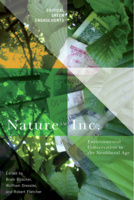The University of Arizona Press is the premier publisher of academic, regional, and literary works in the state of Arizona. They disseminate ideas and knowledge of lasting value that enrich understanding, inspire curiosity, and enlighten readers. They advance the University of Arizona’s mission by connecting scholarship and creative expression to readers worldwide.
Archaeological Structuration
A Critical Engagement for the Twenty-First Century
Archaeological Structuration is a critical analysis of the theory of structuration and its utility in the study of societal development over deep time. Structuration theory was originally developed by Anthony Giddens in sociology and adopted piecemeal into archaeology. This book takes a closer look at its contributions to new materialism and develops novel ways to operationalize the theory in archaeological research in the twenty-first century.
Alterhumanism
Becoming Human on a Conservation Frontier
On the conservation frontier of southern Chile, the lives of smallholding settlers, Indigenous Mapuche farmers, environmental activists, entrepreneurs, and conservation scientists all grapple with the enduring impacts of settler-caused environmental depletion, aspirations for a new ethics of care, and the promises of an ecotourism boom. Here, the question of what it means to be human is not simply an existential concern but the reflexive result of experiences of becoming human through and with nonhuman others in an increasingly uncertain world.
Avocado Dreams
Remaking Salvadoran Life and Art in the Washington, D.C. Metro Area
Avocado Dreams tells the story of how and why Salvadorans migrated to the Washington, D.C. metropolitan area and how in the process they both transformed and were transformed by the region through their labor, culture, language, art, and ingenuity.
Carne de Dios
A Novel
In Carne de Dios, Homero Aridjis transports readers to the world of María Sabina, the revered Mazatec healer, and the sacred mushroom ceremonies that would captivate the global imagination during the 1960s counterculture movement. Through Aridjis’s lyrical prose, vividly translated by Chloe Garcia Roberts, we first journey to the mountains of Huautla de Jiménez in 1957, where Sabina’s veladas—mushroom rituals—draw seekers from across the world forever altering the course of Sabina’s life and the world’s perception of Mexico’s Indigenous traditions.
Warfare and the Dynamics of Political Control
Warfare and the Dynamics of Political Control explores how warfare shapes the establishment, maintenance, and collapse of political institutions across diverse societies and historical periods. The chapters cover a wide range of topics and time periods to bring into focus the material and ideological drivers of conflict, offering deep insights into the complex interplay between violence and political power.
Au Te Waate / We Remember It
Hiaki Survival Through a Bitter War
Au Te Waate / We Remember It offers the personal narratives of Hiaki (Yaqui) individuals who endured the tumultuous period from 1900 to 1930, when they faced systematic attacks, conscription, deportation, and enslavement under Mexican government policies. Presented in both the original Hiaki language and English translation, these accounts offer an unparalleled glimpse into the lives of those who resisted and survived the era’s harsh realities, completely from the Hiaki perspective.
The Archaeology of Kinship
Advancing Interpretation and Contributions to Theory
Mapping Neshnabé Futurity
Celestial Currents of Sovereignty in Potawatomi Skies, Lands, and Waters
Mapping Neshnabé Futurity is an essential read that offers a rethinking of how we conceive of futurity and sovereignty. Morseau’s interdisciplinary approach, blending anthropological research with literary critique, shows how counter-mapping projects both on the ground and in the skies reclaim space in the Great Lakes region—Neshnabé homelands—and are part of Anishinaabé/Neshnabé communities’ constellations of Indigenous futurities and stories of survivance.
Betrayal U
The Politics of Belonging in Higher Education
Betrayal U: The Politics of Belonging in Higher Education is a timely and incisive anthology edited by Rebecca G. Martínez and Monica J. Casper. This groundbreaking volume dives into the heart of institutional betrayal within academia, offering a diverse range of narratives, art, and poetry that address why belonging matters in higher education.
Nature Inc.
Environmental Conservation in the Neoliberal Age
Visions of Transformation
Hegemony, Plurinationality, and Revolution in Bolivia
Visions of Transformation provides an analytical framework through which to interpret and understand the process of social change in Bolivia during the era of Evo Morales.
Rainforest Radio
Language Reclamation and Community Media in the Ecuadorian Amazon
Rainforest Radio follows Napo Kichwa media producers, performers, and consumers across a disrupted Amazon rainforest to understand the effects of different methods and media in language reclamation projects.














